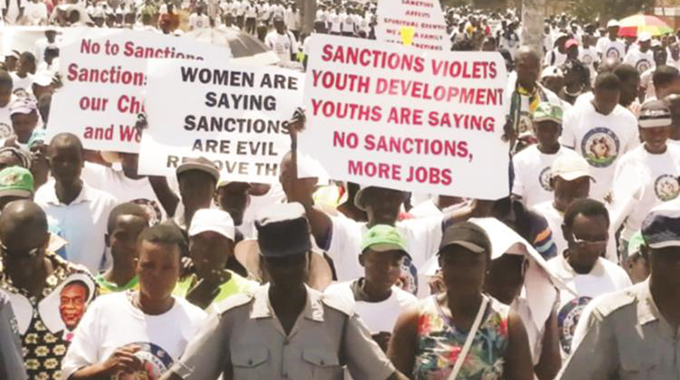
Martin Matsa Correspondent
I used to produce peas and granadillas on my farm in Beatrice for export between 2009-2012 and for me to export these horticultural crops I had to go through a third party who in many ways short-changed me in pricing.
Tesco, the final destination for my produce would not accept my produce despite its excellent quality because it was being produced on an acquired farm. It is common knowledge that produce from farms grown on land allocated to black farmers is not readily accepted on the International markets.
Having noted that I was getting very little return from my crops via agents, I tried in vain to register for direct exports.
My registration again hit a brick wall. This time I was told that I was farming on a farm which was not mine.
Last year I got in touch with a local white farmer who is into blueberry farming. This crop is controlled abroad starting with how you get seedlings to plant in Zimbabwe. Seedlings are imported from Spain and Australia and very stringent conditions are set out for one to qualify as a producer.
I have carried out investigations on who is into this high income earner farming in Zimbabwe, I was shocked to learn that it is a preserve of a few white farmers and of course a few selected and connected black friends who own and have title to their farms. Ordinary good black farmers find it hard to get licenses to blueberries for export.
It costs about US$150 000 to setup one hectare of blueberry farming with the returns over 15 years so high that one can even repay loans after the first year of production.
I have approached local banks for a loan to fund my farming ventures and all efforts have been in vain. Some of the banks are also under sanctions and have to operate under difficult conditions too. If you manage and get a facility with a bank the lending rates are prohibitive.
The white farmers in my area of Beatrice do not assist black farmer boasting that they want to see them fail, waiting for the day they will repossess and restart farming themselves and their kith and kin. If you want to hire equipment like combine harvesters, they will tell you that the equipment is on a long lease hire by any one among themselves.
In trying to bust these sanctions, the Government has gone out of its way to engage private individuals and companies to come on board and support a new revolution in the farming sector, but this is not easy. I have approached several farming companies to buy a tractor and a planter, but the price ranges are so vast that you begin to wonder if it is a ploy to stop upstarts like me from getting into serious commercial farming.
In most countries that are agro-based, a tractor is a basic machine for any commercial farm. Getting a centre pivot for efficient irrigation system is more of a pipe dream to a new farmer. It is imperative that one has to have a tractor as a basic tool of production on the farm.
This is why I applaud the Government for its farm mechanization programme that is bringing in tractors and combine harvesters among other implements from friendly countries to help the new farmer reach his or her potential.
Because of limited markets for farming produce, farmers have been adversely affected by sanctions ever since the land reform programme started. The European flower market is effectively dead for local producers and yet it was a huge foreign currency earner before sanctions.
As a result, we have gone for traditional crops while abandoning horticulture altogether. As new farmers who benefitted from the revolutionary land programme, we are determined to defeat the odds and ensure that Zimbabwe regains its former glory sanctions or no sanctions.
